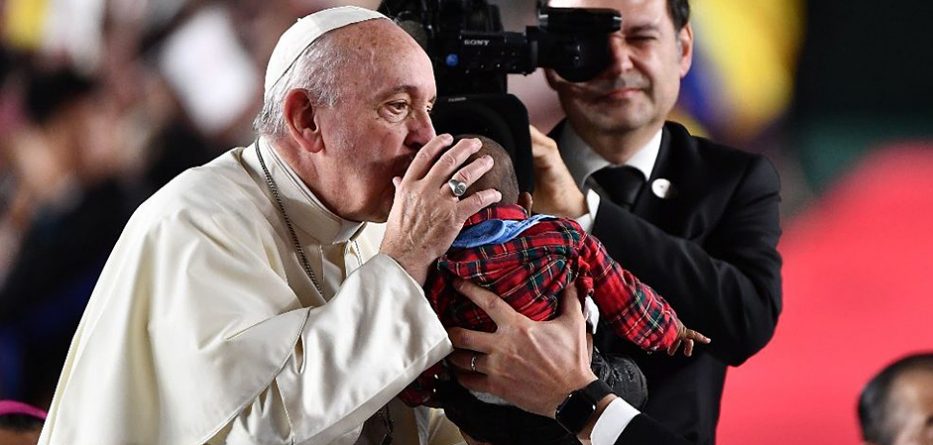Though many have tried to paint Francis as a “liberal” pope—not least because of his deep embrace of the consistent ethic of life—in his 2017 homily for the feast of Pentecost, he explicitly calls out commitments to either liberal or conservative Christianity as problematic. When the Pope visited the United States, he declared that we must “confront every form of polarization which would divide [us] into these two camps.” Although the media often distort his record, Francis’ actual positions follow what I call the “consistent life ethic” (hereafter C.L.E.), as do those of his predecessors, church tradition and the Gospel.
While Pope Francis has given special consideration to what some may consider liberal (to use the problematic binary) life issues, like protecting God’s creation and welcoming undocumented immigrants and refugees, he has also spoken up strongly and clearly for the more traditional pro-life issues. In short, he is quite solidly within the tradition of Cardinal Joseph Bernardin, St. John Paul II and Benedict XVI. But at the same time, his pontificate represents the leading edge of this tradition, and he uses new lenses and metaphors to speak to a new generation. In what follows I highlight what are, in my view, his two most significant contributions to the C.L.E—first, a negative: resisting the throwaway culture; second, a positive: promoting a culture of encounter.
Contemporary consumer culture pushes us to have our experiences mediated “by screens and systems that can be turned on and off on command,” but the culture of encounter to which Francis calls us insists on a “face-to-face encounter with others, with their physical presence which challenges us, with their pain and their pleas, with their joy which infects us in our close and continuous interaction.”
It may be easy to judge and dismiss those we are called to encounter and support and who, therefore, are difficult to love. But this is often the reason they find themselves on the margins of our culture. This is especially important in public discourse within today’s culture. A culture of encounter, characterised by mercy for those we are tempted to judge, means being in intellectual solidarity with those who hold different opinions than we do. It means listening first, presuming goodwill and tolerating views that we find uncomfortable.
For those who disagree (at least for the moment) on politics and policy, a focus on value and convictions can provide common ground and the basis for fruitful encounters that may, down the road, lead to a different outcome.
To continue reading this article, click here.
Charles C. Camosy is an associate professor of theological and social ethics at Fordham University. This essay is adapted from his new book Resisting a Throwaway Culture: How a Consistent Ethic of Life Can Unite a Fractured People (New City).
With thanks to America Magazine and Charles C. Camosy, where this article originally appeared.








